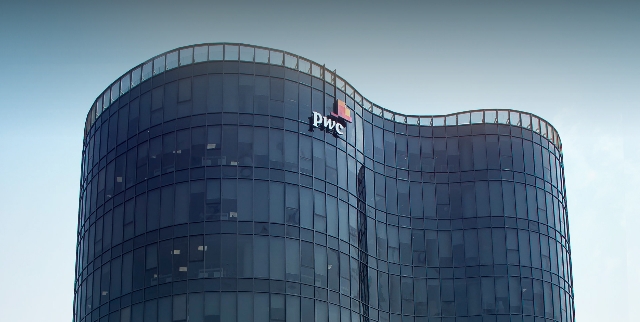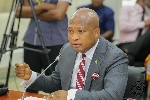Ghana bonds risk 'junk' rating if external debt negotiations not expedited – PwC warns gov't
 PwC
PwC
If negotiations with external creditors/debt holders are not concluded expeditiously, the investor community and financial markets might get jittery, and the international ratings agencies may thrust our bonds ratings further into junk credit territory, accounting and auditing firm PwC has warned.
In its commentary on the 2024 Budget, PwC said: "Additionally, a more critical look at the microeconomic picture beyond the shiny macroeconomic data reveals less glamorous images”.
Presenting the 2024 budget, Finance Minister Ken Ofori-Atta said the economy is on a disinflationary trajectory as headline inflation has dropped almost 1900 basis points from 54.1% to 35.2% while the cedi has remained stable due to the restoration of economic activity.
He also observed an improvement in the Central Bank Gross International Reserve position.
On that, PwC said: "This all seems good", but noted: "We need to accept that it has come at a considerable cost to households and businesses." 'Further, the reported gains are due mostly to interventions that are only skin-deep at present, e.g. the debt standstill has saved us from making significant interest payments in debt service, which has spared the Ghana cedi a significant amount of pressure", it said.
Regarding Mr Ofori-Atta's reference to a banking industry that has reported after-tax profits of ¢6.2 billion, representing 43.8% growth, PwC asked: “At what cost?”, indicating: "The Bank of Ghana’s Monetary Policy Committee (MPC) in September 2023 report observed that the annual growth rate of private sector credit over the 12-month period up to August 2023 was 10.7% compared to 35.8% over the 2021/2022 equivalent period. In real terms, private sector credit contracted by 21% compared to a growth of 1.4% in the equivalent comparable prior period.”
Alao, PwC said the industry’s non-performing loans (NPL) ratio rose from 14% (August 2022) to 20% (August 2023), reflecting the poor performance of the real sector and the increased risk aversion of banks for the real sectors of the economy.
As far revenue is concerned, it reiterated its position that the government should consider creative ways of roping the informal sector into the revenue mobilisation net.
It said the sector is huge, creates value, most of which is escaping the government’s tax dragnet, making government’s current taxation policy and administration approach inequitable.
Source: classfmonline.com
Trending News

Ashanti NDC members protest return of former DVLA regional director
14:24
Ghana revokes diplomatic and service passports of former officials and non-state actors
13:12
MP for Awutu Senya West supports 53 tertiary students with scholarships
11:49
Defence Minister commends Erastus Asare Donkor for anti-galamsey reporting
01:03
DVLA to open six overseas offices to help curb fake Ghanaian licences abroad
11:54
Supreme Court dismisses injunction application against President Mahama in Chief Justice case
12:41
GA/R: Tragic fire claims life of 5-year-old girl at Adjei Kojo Sancity
11:36
National Chairman is attending to some urgent issues in Accra, he will join the tour after that - Justin Kodua
00:19
COCOBOD CEO urges return to core mandate of funding cocoa
11:28
Sam George throws shade at Afenyo-Markin over police assault claims
12:21




